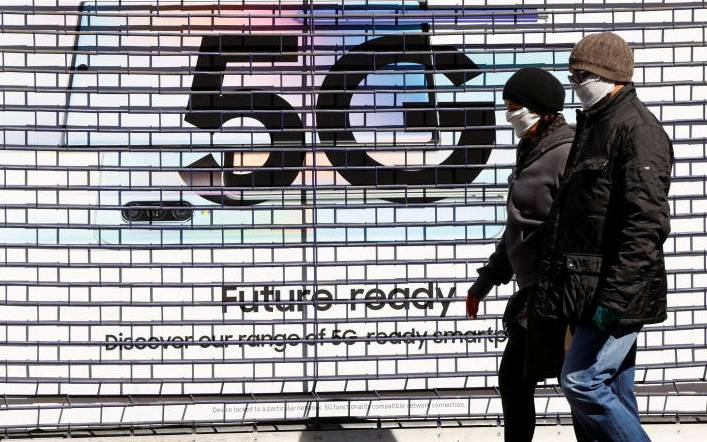×
The Standard e-Paper
Kenya’s Boldest Voice

People wearing masks walk past a 5G advert as the spread of the coronavirus disease (COVID-19) continues, London, Britain, April 14, 2020. REUTERS/John Sibley
Conspiracy theorists are churning out lies about a new technology that is designed to take the world to Fourth Industrial Revolution.